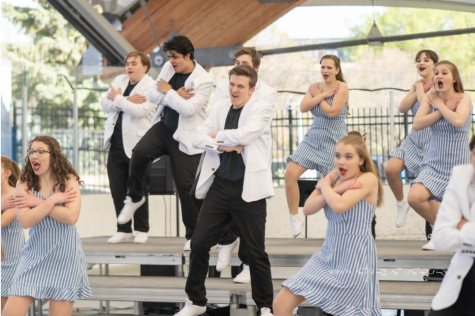The Social Massacre on the Performing Arts

October 2, 2022
All over the world, people have witnessed the performing arts take one of the biggest hits ever with COVID-19, one that will take years to recover from. Once the pandemic hit Totino-Grace High school everyone knew the performing arts department would never be the same.
Most professional performances were canceled, streamed, or recorded because large audiences were prohibited. Not to mention the cast and crew themselves would easily get sick and forced to stay home for a few weeks before they can perform again. Production of Little Women at TG was recorded similarly to a movie.
“Is it a performance if no one is listening? No.” said Mr. Tim Hoffman, music and band director at TG.
How TG dealt with conflict compared to other schools
Most schools were forced to be completely virtual, including their art classes, while most, if not all, of their programs were canceled and TG went into a hybrid way of learning and performing.
“It was challenging,” choir and show choir director Mr. Philip Brown said. “For any performing art you don’t think of a performing art on zoom or google meet. For me, I could do a choir rehearsal online, and I did for a full year, but if I’m singing at home, I don’t feel what it’s like to sing with other people the way I would if it was all the same.”
The true impact the pandemic has had on the arts
For years, the arts have been viewed as lesser than other activities. Throughout the past few decades, sports have risen to the top of the entertainment charts and the arts have been pushed aside.
 The pandemic did not help the arts’ chances. Funds for the arts disappeared. Fewer and fewer kids were able to be exposed to the arts; therefore, there was a decrease overall in students participating in the arts and wanting to pursue it as a career.
The pandemic did not help the arts’ chances. Funds for the arts disappeared. Fewer and fewer kids were able to be exposed to the arts; therefore, there was a decrease overall in students participating in the arts and wanting to pursue it as a career.
“Thinking back on it now, even though we were so fortunate to be together, it was still horrible,” said Joe Thomas, a senior student and president choir officer at Totino-Grace. “There was already a ‘they’ factor to the choir people, where they get made fun of and that shielding separated it even more.”
In the end, the arts are still here. However small, art always finds a way to strive. It’s not surviving, art teaches us how to thrive.





